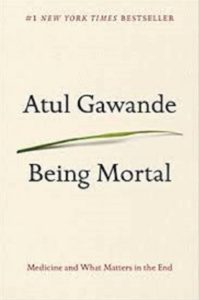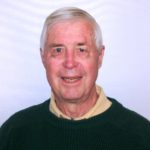 Here is a challenge and a question.
Here is a challenge and a question.
The challenge: “Our decision-making in medicine has failed so spectacularly that we have reached the point of actively inflicting harm on patients rather than confronting the subject of mortality.”
The question: Can the medical profession change from its former “priestly doctor-knows-best” and its current “informative” models to a more jointly-responsible “interpretive” model in which patients and physicians work together to mold priorities and decisions?
Atul Gawande, a professor at Harvard Medical School and one of the most thoughtful and articulate observers of the medical scene today (frequently in The New Yorker), asks us to “ … confront the realities of decline and mortality,” not with fear but with intelligence and realism. Too often “the waning days of our lives are given over to treatments that addle our brains and sap our bodies for a sliver’s chance of benefit.”
It has not always been that way. In the past “elders were cared for in multi-generational systems” when we died much sooner and faster, but now we must endure multiple failures in our bodies during “long retirements. … We are already oddities living well beyond our appointed time.” Institutionalization means loss of privacy and control, too many medications whose combined effects we don’t understand, and too much passive entertainment. Even the advent of the much-heralded “assisted living” mechanism has been watered down and often corrupted.
Gawande proposes a future in which “geriatrics” will be taught to all physicians who, in turn, will discuss options with us realistically. For example, his illustration is the simple use of living plants, birds, dogs, and cats, plus smaller groupings of the aged to reduce “the plagues of nursing home existence: boredom, loneliness, and helplessness,” so that we can “renew the joy of life.”
But the good doctor seems to equivocate when it comes to the idea of “death with dignity,” or the option of physician-assisted suicide, now permissible to some degree in five states in the U. S. and in The Netherlands. “I am leery of the idea that endings are controllable,” he writes. Must we insist, legally, on palliative care for the terminally ill? Don’t we/they have an inherent right to select our own course of action, not only for terminal physical illnesses where courses of painful (and costly) procedures may give us only a few extra months, but also for forecasts of mental deterioration, such as dementia and Alzheimer’s?
An inability or unwillingness to take our own early action when capable may create enormous costs (mental and financial) to all of us. I am an advocate of considering options early enough, working with our physicians, but retaining the right to final decisions, including death.
(Read, for example, Derek Humphry”s Final Exit, Random House, New York 2002)
Doctor Gawande’s goal makes eminent sense, “The battle of being mortal is the battle to maintain the integrity of one’s life – to avoid becoming so diminished or dissipated or subjugated that who you are becomes disconnected from who you were or who you want to be.”
Editor’s Note: ‘Being Mortal’ by Atul Gawande is published by Henry Holt and Co., New York 2014.

Felix Kloman
About the Author: Felix Kloman is a sailor, rower, husband, father, grandfather, retired management consultant and, above all, a curious reader and writer. He’s explored how we as human beings and organizations respond to ever-present uncertainty in two books, ‘Mumpsimus Revisited’ (2005) and ‘The Fantods of Risk’ (2008). A 20-year resident of Lyme, he now writes book reviews, mostly of non-fiction that explores our minds, our behavior, our politics and our history. But he does throw in a novel here and there. For more than 50 years, he’s put together the 17 syllables that comprise haiku, the traditional Japanese poetry, and now serves as the self-appointed “poet laureate” of Ashlawn Farms Coffee, where he may be seen on Friday mornings. His wife, Ann, is also a writer, but of mystery novels, all of which begin in a bubbling village in midcoast Maine, strangely reminiscent of the town she and her husband visit every summer.